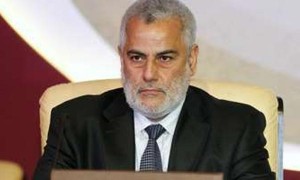By Siham Ali in Rabat
for Magharebia
As Morocco mulls tough economic measures, citizens worry about the big dent in their purchasing power.
Morocco will remove all subsidies on petroleum products by the end of this year, Prime Minister Abdelilah Benkirane said.
When questioned on Wednesday (December 3rd) by MPs about the need to preserve the public’s spending power, Benkirane said he was determined to implement reforms even if they were tough and painful.
He announced that steps were currently being taken to remove the subsidy on butane gas, which costs the state budget 14 billion dirhams every year.
The current retail price of a 12-kilogramme cylinder is 42 dirhams, but the real cost is 125 dirhams. Cylinders are also used by hotels, restaurants and in the farming industry.
According to Benkirane, this is absurd.
But the government is considering means of supporting the poor so that they do not suffer from the consequences of this decision, the premier said.
The announcement caused concern among many members of the public who are critical of the government’s approach of taking funds away and eroding the spending power of the middle class and the poor.
Bank manager Fatah Slimani said the government could have considered alternatives, such as tackling the rentier economy or tax fraud, which could add a large amount of money to the state’s coffers.
“But unfortunately, the government is choosing easy options. The removal of subsidies on petroleum products and butane gas will have a negative impact on people’s wallets because the prices of other consumer products will rise due to the increase in transport costs,” he told Magharebia.
This view is shared by Khira Zyati, a teacher, who said that the removal of subsidies would hurt the middle class and make the poorest in society even poorer.
“The prime minister said that prices have not gone up. But the reality is different. I have felt the difference. I’m now spending double what I was three years ago,” she said with frustration.
MPs have criticised the government for not setting out an overall approach to the reform of the Subsidies Fund in order to safeguard the public’s spending power.
The government should have put together an overall reform package that included all subsidised goods, and measures to support the middle class and the poor, economist Mehdi Tebri said.
The government has benefited greatly from the fall in oil prices on the international market, but if prices rise, it is the public who will suffer the consequences, he noted.
“The government has not said what it will do if there is a very sharp rise in the prices of petroleum products,” he said.
According to political analyst Soufiane Hariti, the effects of government policies on citizens’ daily lives should be considered.
In parallel with the removal of subsidies, the government should have considered other measures such as increasing the public’s access to healthcare services and boosting youth employment, he said.




